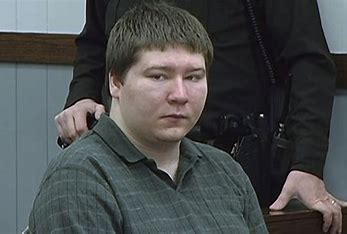Brendan Dassey is one of the subjects of the Netflix documentary series “Making a Murderer”, which chronicled his conviction and imprisonment for the 2005 murder of Teresa Halbach, along with his uncle Steven Avery. Dassey was only 16 years old when he confessed to participating in the brutal crime, but he later recanted his confession and claimed he was coerced by the police. Despite numerous appeals and legal challenges, Dassey remains behind bars at the Oshkosh Correctional Institution in Wisconsin, serving a life sentence with no parole eligibility until 2048. Here is the latest update on his case and his ongoing fight for freedom.
A Series of Setbacks
Dassey’s case gained international attention and sympathy after “Making a Murderer” aired in 2015, exposing the flaws and inconsistencies in the investigation and prosecution of Halbach’s murder. The series also raised doubts about the validity of Dassey’s confession, which was obtained after hours of interrogation without a lawyer or a parent present. Dassey, who has a low IQ and cognitive disabilities, appeared to be confused and suggestible during the questioning, and often contradicted himself or gave incorrect details.
In 2016, a federal judge overturned Dassey’s conviction, ruling that his confession was involuntary and violated his constitutional rights. The judge ordered that Dassey be released or retried within 90 days. However, the state appealed the decision, and a federal appeals court reinstated Dassey’s conviction in 2017. Dassey’s lawyers then appealed to the U.S. Supreme Court, but the high court declined to hear the case in 2018, effectively ending Dassey’s hopes for federal relief.
A New Hope
Despite the disappointing outcome at the federal level, Dassey’s legal team did not give up on his case. In 2019, they filed a petition for clemency or commutation with Wisconsin Governor Tony Evers, who has the power to pardon or reduce Dassey’s sentence. The petition argued that Dassey was wrongfully convicted based on a false confession, that he was a model prisoner who posed no threat to society, and that he deserved mercy and compassion after spending more than a decade in prison for a crime he did not commit.
The petition was supported by numerous experts, advocates, celebrities, and former prosecutors and judges, who wrote letters or signed petitions urging Governor Evers to grant clemency to Dassey. Among them were Laura Nirider and Steven Drizin, Dassey’s lawyers and co-directors of the Center on Wrongful Convictions of Youth at Northwestern University; Kim Kardashian West, a reality TV star and criminal justice reform activist; Seth Waxman, a former U.S. Solicitor General; and more than 250 current and former law enforcement officials.
However, Governor Evers denied Dassey’s petition in December 2019, without even reading it. He stated that Dassey did not meet the criteria for clemency, which required that applicants have completed their sentences or be eligible for parole within two years. Dassey’s lawyers criticized Evers’ decision as unfair and arbitrary, and vowed to continue their efforts to free Dassey.
What’s Next?
As of 2022, Dassey is still waiting for another chance to prove his innocence or obtain his release. His lawyers have said that they are exploring other legal options, such as filing a new motion for post-conviction relief based on newly discovered evidence or ineffective assistance of counsel. They have also not ruled out the possibility of asking Governor Evers for clemency again, hoping that he will reconsider his position and review Dassey’s case more thoroughly.
Meanwhile, Dassey is trying to cope with his life in prison as best as he can. He has been taking classes and earning certificates in various subjects, such as animal care, business management, and computer skills. He has also been writing letters to his supporters and expressing his gratitude for their encouragement and prayers. He has maintained his innocence throughout his ordeal, and has never lost hope that one day he will be reunited with his family and friends.
Brendan Dassey is one of the many victims of wrongful convictions in the United States, who have been deprived of their freedom and dignity by a flawed criminal justice system. His case is a reminder of the need for reform and accountability in law enforcement and prosecution practices, especially when dealing with vulnerable populations such as juveniles and people with disabilities. His case is also a testament to the power of public awareness and advocacy, which can expose injustice and inspire change. Brendan Dassey deserves justice, and his fight for freedom is not over yet.

